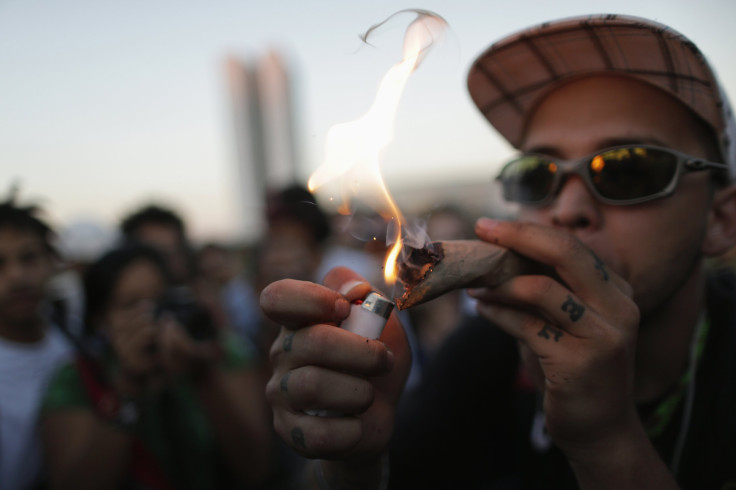Latin America Softens On Marijuana

Uruguay turned into an international star in the drug legalization movement when it became the first country in the world to approve the growth, sale and distribution of marijuana. But inch by inch, countries across Latin America are also softening their approaches toward the drug.
Latin America has been the epicenter of the so-called war on drugs over the past two decades. But as narco-trafficking and drug consumption have continued to bloom, many government officials across the region admit that heavy-handed crackdowns on drugs have failed.
Countries like Mexico, Colombia and Argentina already decriminalized marijuana possession in small amounts several years ago. But in the wake of Uruguay’s landmark legislation, as well as U.S. state success stories in Colorado and Washington, Latin American momentum is building to expand decriminalization and legalization laws around marijuana.
Argentina’s government, with the support of President Cristina Kirchner, is currently drafting a set of proposals to loosen restrictions on marijuana possession. According to Argentine newspaper La Nacion, the initiative will build upon two previous proposals, one of which called for decriminalizing growing marijuana for personal use and legalizing the possession of all drugs for private use.
In Guatemala, a prime transit location for drug trafficking, President Otto Perez Molina has long been a harsh critic of the failures of the drug war. Molina told Reuters in June that he hoped to present a plan for legalizing marijuana, and potentially other drugs, by the end of this year.
Chile and Costa Rica are also debating medical marijuana policies: A Chilean woman diagnosed with lupus and breast cancer received approval from the Institute of Public Health to take a painkiller derived from cannabis to soothe her symptoms, making her one of the region’s first legal medical marijuana patients. Costa Rica’s legislature is also mulling a bill to legalize medical marijuana, although President Luis Guillermo Solis has ruled out any legislation to approve it for recreational use.
Elsewhere, decriminalization has already spread through a number of other countries. More recently, Jamaica loosened penalties for marijuana possession in June, allowing those with two ounces or less of the drug to receive a ticket and a fine rather than jail time. Ecuador also approved a law last year exempting people with less than 10 grams of marijuana from punishment.
But even while governments’ approaches toward marijuana are softening, the prospects for legalization across the region are still fragile. For many countries, next steps will hinge on Uruguay’s success. Officials in Uruguay estimate that marijuana markets could open in early 2015. But the Associated Press reported earlier this month that public support for the historic law on legalization has fallen to just 27 percent, and top opposition politicians have vowed to repeal the law after elections in October.
© Copyright IBTimes 2024. All rights reserved.






















